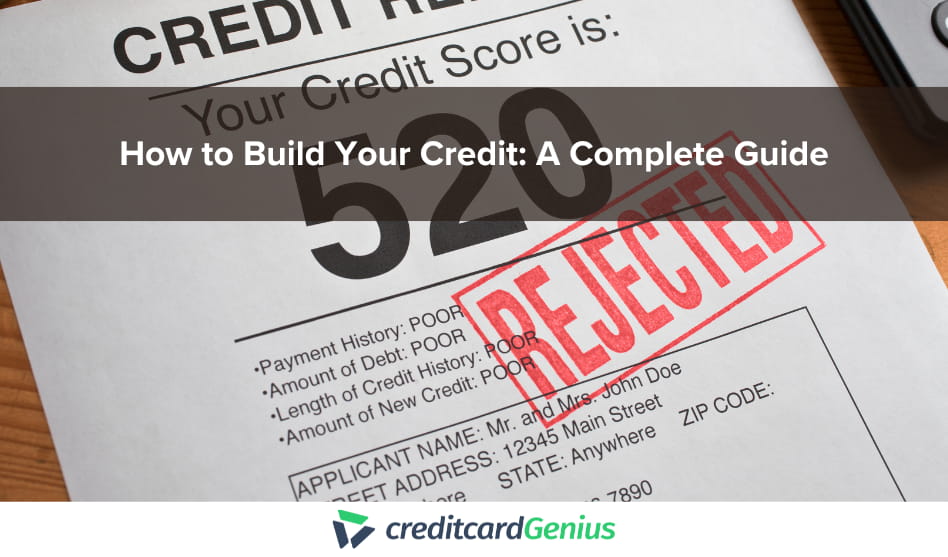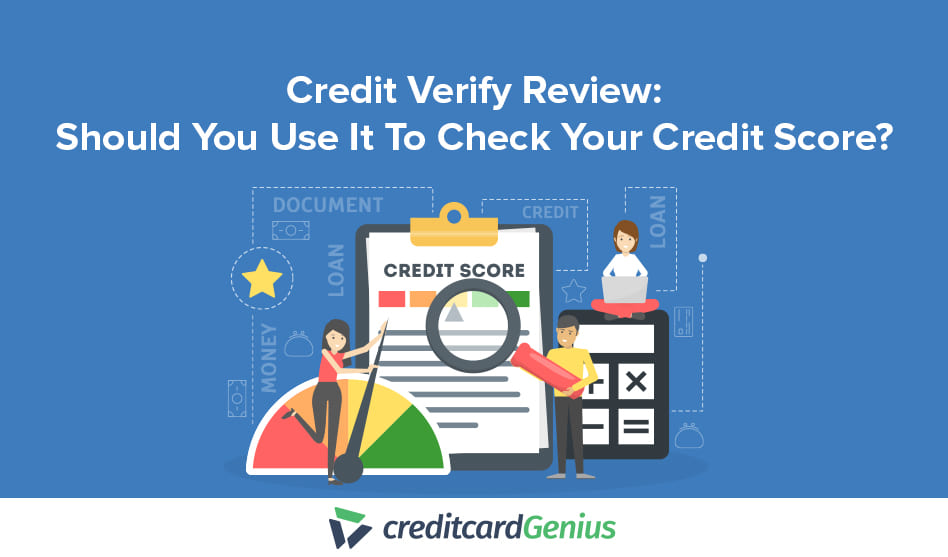If you’re wondering how to build your credit score, rest assured that with a little time and a solid financial strategy, you can achieve your goal. It’s true that having a credit card and using it responsibly can really help to improve your score, but it’s not required.
The most important aspect of building credit is to make all bill payments on time, and preferably in full. Credit builder loans can also help, and sticking to a well-planned budget can make a big difference.
Here, we share valuable strategies and products for building your credit score with and without a credit card.
Key Takeaways
- Equifax and TransUnion, the two credit monitoring bureaus in Canada, look at personal details that make up your credit file to come up with your credit score.
- To build your credit score, focus on making credit card payments on time and in full every month.
- Try to have a mix of credit types and don’t apply for more credit than you need.
Never miss an amazing deal again + get our bonus 250+ page eBook for FREE. Join 50,000 other Canadians who receive our weekly newsletter – learn more.
Understanding credit
Your credit is your ability to borrow and repay money, although it’s a bit more complicated than that.
When you’re opening a new account, like a mortgage or car loan, or signing up for things like credit cards or cell phones, a lot of emphasis is placed on your credit.
Before we jump into types of credit, let’s define a couple of important terms:
- Credit report: This is a comprehensive summary of your entire credit history as reported to the two credit bureaus. It includes both open and closed credit accounts, as well as public records such as bankruptcies.
- Credit score: Each credit monitoring bureau looks at the details of your credit report and uses the information to assign you a credit score. This is a three-digit number between 300 and 900—the higher the score, the better you appear to lenders.
Types of credit
Not all credit is created equal; ideally, for the best credit score, you should have a mix of credit types. Here’s what the bureaus are looking for:
Installment loans: Installment loans are typically loans with fixed interest rates and payment amounts. For example, a car loan is a loan that you pay back in installments according to terms that you agreed on (like term length and interest rates). Other types of installment loans include mortgages, student loans, and personal loans.
Revolving debt: Credit cards are probably the most widely known type of revolving debt. You have access to a credit limit that you borrow against. As you repay what you owe, you regain access to that credit. Other examples of revolving credit include home equity lines of credit,
Open accounts: These usually involve accounts where a service is provided before payment is received. Your cell phone plan is a great example of an open account. You sign a contract with a cell phone company that provides cell coverage. Then, you pay your monthly bill to continue getting service.
Credit bureaus in Canada
There are two credit bureaus in Canada that assign credit scores: Equifax and TransUnion. These bureaus collect financial information about you from various lenders, banks, or credit providers. They also collect details from courthouses and collections agencies.
Each credit union weighs your personal factors differently to generate a score, which is why your score might vary by credit bureau. They might also receive different information and update their scores on different days. This is why it’s useful to check both credit scores before you apply for credit.
To check your credit score for free, create an online account with both credit bureaus or see if your bank or credit union provides the information. You can also access your score for free using a credit monitoring company like ClearScore, Borrowell or Credit Karma.
How to build credit
Credit monitoring bureaus look at specific financial habits to assign you a score, which is typically updated every 30 days.
To start, you should open financial products slowly – don’t apply for a dozen credit cards just to see if you’re approved. Instead, only apply for credit when you need it and wait in between applications.
Once you have a credit card, do everything you can to make payments in full and on time. This shows the credit bureaus that you’re responsible with credit, so your score will go up.
You can also build credit without a credit card. Maybe you’re added as an authorized user on someone else’s credit card account, or you simply make recurring payments like your cell phone plan on time.
Build credit with a credit card
Credit cards are often one of the best ways to build credit because they’re so accessible and easy to use. That said, racking up a balance and missing payments can damage your score, so follow our suggestions for responsibly using a credit card.
Pay your balance in full and on time
According to Equifax, your payment history is responsible for 35% of your credit score – the biggest factor of all.
Here’s how it works: When you have a credit card, your card issuer reports your payments to Equifax and TransUnion every month.
If you miss a payment, it will be reported, and it will damage your credit score. So, one of the best ways to boost your credit score is to make your payment on time every month. Ideally, you pay off your card, but if you can’t, you should at least make the minimum required payment.
Keep credit utilization low
You may have heard of the term credit utilization. This is often expressed as a ratio, and it’s simply the percentage of credit that you have access to and are currently using. For instance, if you have a credit card with a $1,000 limit and you’ve charged $500 to it, you have a 50% credit utilization ratio.
The credit bureaus want to see a low credit utilization ratio, which shows you’re not financially stressed and you can pay off your debt.
If your credit utilization is high, there are a few things you can do:
- Try to pay down your debt
- Ask for a credit limit increase
- Open an additional credit card
Only try those last two options if you’ve paid off your credit card debt, since you’ll have better approval odds.
Keep in mind that when you request new credit, providers will do a hard check of your credit score, which can make it drop temporarily. You may want to limit the number of products you apply for.
Best credit cards to build credit
Secured cards, student cards, and cards with low barriers for acceptance are excellent tools to help you build credit. Just remember that to build your credit, you have to use your credit card responsibly, which means making payments on time and in full every month.
Here are a few of the top credit cards to help build your credit:
| Credit Card | Card type | Annual fee | Income requirements | Welcome offer | Apply now |
|---|---|---|---|---|---|
| Neo Secured Mastercard | Secured credit card | $95.88 | * $0 personal * $0 household | None | Apply now |
| Home Trust Secured Visa Card | Secured credit card | $0 | * $0 personal * $0 household | None | Apply now |
| Tangerine Money-Back Credit Card | Unsecured credit card | $0 | * $12,000 personal * $0 household | 10% extra cash back for the first 2 months (terms) | Apply now |
| BMO CashBack® Mastercard®* for students | Student Card | $0 | * $0 personal * $0 household | 5% cash back for the first 3 months (terms) | Apply now |
| KOHO Extra Mastercard | Prepaid card | $144 | * $0 personal * $0 household | $20 after the first purchase | Apply now |
Building credit with a prepaid card
If you don’t qualify for an unsecured credit card, a specific type of prepaid card might be a good option. While the majority of prepaid credit cards do not affect your credit score, the KOHO Extra Mastercard does.
With this KOHO card, you’ll deposit funds into an account, and your purchases with the card are deducted from it. You’ll earn interest on your deposit and even earn cash back rewards. However, one of the best aspects of this card is that you can use it to opt into the KOHO Credit Building program.
For a small monthly fee, KOHO will report the payment to Equifax. Over time, these responsible KOHO Extra Mastercard payments can boost your credit score.
Build credit without a credit card
As you can see, making regular payments on a credit card can really improve your score, but if your credit score is too low to qualify for a credit card, don’t worry. There are other ways to build credit that don’t rely on you applying for and using your own card.
Become an authorized cardholder
If your parent, spouse, or partner has a credit card that’s in good standing, they may be able to add you as an authorized user for free or for a fee. You’re essentially added to their account, so your purchases count against the account’s total credit limit.
If you fall behind on payments or spend over the credit limit, you could damage both your credit scores. However, positive credit card use can help build your score if the card issuer reports authorized cardholder activity to the credit bureaus. Not all card issuers do this, so be sure to check before you’re added to someone’s account.
Credit builder loans
Credit builder loans, offered by banks, credit unions, etc., are small loans that you take out just for the sake of making regular payments that are reported. Since they’re easier to qualify for than a credit card, a credit builder loan is a valuable option for someone with low or no credit.
Here’s an example of how it works:
- You apply for a small credit builder loan of $500
- You make a $25 payment every month
- Over the following 20 months, these payments are reported
- Your credit score improves
- The loan term ends
- You get the money back, minus fees and interest
Pay recurring bills on time
Don’t overlook the simple power of paying your cell phone bill on time. Yes, making regular mobile phone or internet payments can improve your score if your phone or internet provider reports your account to the credit bureaus.
Rebuilding credit after bankruptcy
If you’ve filed for bankruptcy, some of these strategies might seem challenging, but there are things you can do to recover your credit score. Here’s a basic overview of the steps you can take:
- Work with a credit repair specialist: Speak with a not-for-profit financial advisor who can look at your specific situation and offer guidance. They can also help you review your credit report for errors and inaccuracies that might be affecting your credit score.
- Create a realistic budget: Since you won’t be able to borrow money for a while, you must take a look at your income and expenses and make a budget that you can stick to. It’s vital that you don’t get stuck with overdraft fees or non-sufficient fund fees. Fortunately, it’s easier than ever to find useful online tools or mobile budgeting apps.
- Make every payment on time: Whether you’re paying your phone bill, internet provider, or another recurring payment, prioritize your payments so there are no negative reports on your credit report.
- Build your savings: Since you’ve addressed your debt, you should have the ability to start saving for emergencies or purchases. Plus, if you’ll be working with lenders down the road, they like seeing a healthy savings account.
- Open and fund a Registered Retirement Savings Plan (RRSP): After you’ve got a savings account off and running, focus on your retirement savings with an RRSP. The contributions are tax-deductible, so you can also save a little on your income tax for the year.
Open a secured credit card
Don’t overlook the value of a secured credit card. Unlike an unsecured credit card, where you apply for and are granted a credit limit that you borrow against, a secured card uses your personal funds. When you open a secured card, you make a deposit, which becomes your credit limit.
As you make purchases, the money is deducted from your account, so, in order to keep using the secured card, you have to make payments. These regular payments and responsible use are reported to the credit bureaus, which build your score over time.
FAQ
What are the fastest ways to build credit?
If you’re trying to build credit quickly, open a credit card and pay it in full on time every month. You could also try becoming an authorized user on someone else's credit card, as long as the primary cardholder agrees.
How do you build credit quickly in Canada?
Newcomers or people new to credit should start building credit by opening a bank account, getting a credit card and using it responsibly, being selective about applying for credit, and getting a cell phone plan.
At what age can you start building credit?
Generally, you can start building credit when you reach the age of majority in your province, usually 18 or 19. This is also the age you have to be to qualify and apply for your own credit card.
Does paying for a cell phone build credit?
Some, but not all, phone providers report payments to the credit bureaus. Before you purchase a plan, ask the phone provider if they report payments. Whatever plan you have, be sure to make payments in full and on time.
What credit score is needed to buy a house?
Usually, you need a score of at least 680 to get a mortgage, but the higher your score, the better your approval odds are. Plus, with a higher score, you’ll be offered better interest rates and terms.
creditcardGenius is the only tool that compares 126+ features of 228 Canadian credit cards using math-based ratings and rankings that respond to your needs, instantly. Take our quiz and see which of Canada's 228 cards is for you.






































Comments
Leave a comment
Required fields are marked with *. Your email address will not be published.